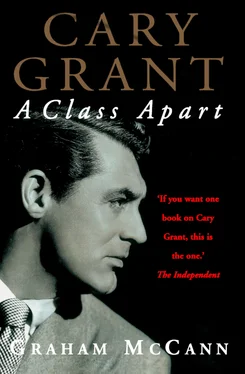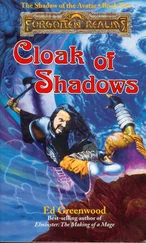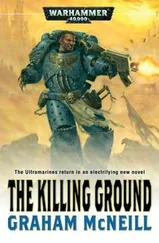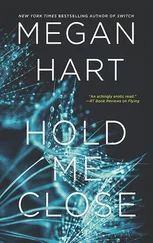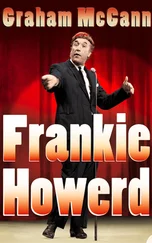In that early shot Cary hadn’t acquired the poise and confidence, the kind of looseness before the camera that he later had. He still looked like English music-hall. I know how I would feel if someone showed a lot of footage of me before I had smoothed out my craft. 54
Nothing came of the work. 55 In August 1931, Leach asked to be released from his Shubert theatre contracts. The Shuberts obliged. At the end of that month he was engaged to play a character named Cary Lockwood opposite Fay Wray in her husband John Monk Saunders’s play Nikki . It opened at the Longacre Theater in New York on 29 September 1931. Leach was paid $375 for each of the first three weeks, and $500 per week for the remainder of the run. The show, however, did not endear itself to audiences for whom the theatre was now an expensive luxury, and, although it was moved to the George M. Cohan Theater in a desperate bid to save it, Nikki closed after only thirty-nine performances.
In November 1931, shortly after Nikki closed, Archie Leach sub-let his small apartment and decided, along with his friend Phil Charig (who had written the music for the show), to visit California. Having worked steadily for more than three years, he felt he could now afford to take a vacation. Fay Wray, to whom he had become very close during the run of the show, had been offered a part in the movie that RKO Radio was planning from Edgar Wallace’s story King Kong . She had invited Leach to follow her. 56 Other people had, at various times during the previous two years, encouraged him to move on and attempt to establish a movie career in Hollywood, and now, after yet another show had ended – in his view – prematurely, the time, at last, seemed right.
CHAPTER V Inventing Cary Grant
Yes, despite his appearance, he was really a very complicated youngman with a whole set of personalities, one inside the other like a nest ofChinese boxes .
NATHANAEL WEST
I guess to a certain extent I did eventually become the characters I wasplaying. I played at being someone I wanted to be until I became thatperson. Or he became me .
CARY GRANT
If Archie Leach, as he left New York for Hollywood, had come to think of himself as a self-made man, then Cary Grant, as he stepped out into the Southern Californian sunlight, would come to think of himself as a man-made self. Archie Leach had learned a great deal in a short period about how to perform, but, so far, he had learned little about how best he might use this technical knowledge to lend a certain distinctiveness to his own performances. Cary Grant would bring an unusual, attractive, imaginative personality to complement the existing solid technique. The change of name, in itself, was banal; it was common practice in Hollywood, where words were put to the service of pictures and one’s name functioned as a sub-title for one’s image. The change of identity, however, was profound; the new name heralded a new self.
Archie Leach did not arrive in Los Angeles with any great expectation of such a rapid and dramatic transformation. He was hopeful of employment in Hollywood, but he was not desperate; he knew that the Shuberts were eager to use him again, should he wish, or need, to return to Broadway. He could afford, therefore, to approach this new challenge with enthusiasm rather than trepidation.
There are, perhaps predictably, several versions of how Archie Leach managed to secure for himself a studio contract. One account, which was popularised by Mae West, has it that she ‘discovered’ him when he was a humble extra on the Paramount lot. 1 This is quite untrue; indeed, it was a canard that continued to infuriate Cary Grant whenever he saw it in print. 2 He was never an extra, and he had made seven movies before he first appeared with Mae West. Another version – more plausible but still with no documented evidence to support it – was put forward by Phil Charig: according to his account, he took Archie Leach with him when he was summoned for an interview at Paramount’s music department, and, although he was not offered a job, the interviewer was sufficiently impressed by Leach’s good looks to recommend him for a screen test. 3 There is, however, another version which, since it originated with Grant himself and there is no obvious reason to doubt him on this matter, may be regarded as authoritative: according to Grant, a New York agent – Billy ‘Square Deal’ Grady of the William Morris Agency – gave him the office address in Hollywood of his friend Walter Herzbrun, and Herzbrun, in turn, introduced him to one of his most important clients, the director Marion Gering. 4
Archie Leach did not just have handsome features – plenty of other young, out-of-work actors in Los Angeles at that time were that good looking – he also had genuine charm. It is clear that Archie Leach found it remarkably easy to find people who were able and willing to support his embryonic career. As had happened in New York, Leach became a popular new guest at Hollywood social occasions, and it was not long before he had the opportunity to impress a number of producers and directors. His new, unofficial patron Marion Gering was planning to screen-test his wife, and he thought that Leach could play opposite her. Gering took Leach to a small dinner party at the home of B. P. Schulberg, the head of production at Paramount’s West Coast studio. Schulberg was, it seems, happy to accede to Gering’s request, and a screen test and the offer of a long-term contract (worth $450 per week) were the results.
Archie Leach had achieved, with what seems like remarkable ease, the basis for a movie career. Before he could begin acting in any movies, however, he first needed to work on his identity. As with many young contract players, the studio questioned the marquee value of his name: ‘They said: “Archie just doesn’t sound right in America.’” ‘It doesn’t sound particularly right in Britain either,’ was his rather embarrassed reply. 5 He was told, without any intimation that the matter might be open to negotiation, that ‘Archie Leach’ was unacceptable, and was instructed to come up with a new name ‘as soon as possible’. 6 That evening, over dinner with Fay Wray and John Monk Saunders (the author of Nikki ), it was suggested that Leach might adopt the name of the character he had played in their show: Cary Lockwood. Leach liked ‘Cary’ as his first name, but he was told by someone at the studio that there was already a Harold Lockwood in Hollywood, 7 and so the search for a new surname continued. 8 The studio advised him to choose a short name: it was the era of Gable, Cooper, Cagney and Bogart. A secretary gave Leach the standard list of suggestions which had been compiled for such a purpose. ‘Grant’, according to his own recollection of the deliberations, was the surname which ‘jumped out at me’. 9
Paramount, it seems, was equally satisfied with the combination. ‘Cary’ sounded pleasingly ambiguous, a supple name which, when pronounced to rhyme with ‘wary’, could suit a sophisticated image, and, when pronounced to rhyme with ‘Cary’, could fit with a more plebeian persona. The name’s new owner never seemed particularly interested in proposing a definitive pronunciation: some of his friends, such as Alfred Hitchcock, favoured the former, while others, such as David Niven, favoured the latter (he himself managed, typically, to find a subtle via media , and he only ever protested when anyone attempted to call him ‘ Car ’). ‘Grant’, on the other hand, sounded reassuringly American; it had more simple and solid connotations, a nod perhaps to the Hero of Appomattox, General Ulysses S. Grant, eighteenth president of the United States. Someone noticed that Cary Grant’s initials were the same as Clark Gable’s and the reverse of Gary Cooper’s; it seemed a good omen – Gable and Cooper were the most popular matinee idols of the day.
Читать дальше
